High blood pressure sometimes occurs for a short time. However, if the values are consistently higher than normal, a doctor must be consulted. A Kidney disease, as the Nephropathy, can be the result of untreated high blood pressure.
What is kidney disease (nephropathy)?
-bei-bluthochdruck.jpg)
© Crystal light - stock.adobe.com
A Kidney disease (nephropathy) arises in patients who suffer from high blood pressure and who do not receive or receive insufficient treatment.
Since kidney function and blood pressure are interrelated, the secondary disease is chronic kidney failure. On the one hand, blood pressure is regulated by the release of hormones from the kidneys. On the other hand, the kidneys are responsible for the fluid balance in the body. The interaction of both factors thus determines the blood pressure.
Persistent high blood pressure can damage the vascular system within the kidney. However, damage to the kidney can also be the cause of high blood pressure. Kidney disease initially goes unnoticed. The lower the kidney function, the more symptoms there are.
At first, patients feel tired and have less appetite. Headaches with nausea and vomiting may occur. In addition, there is also the accumulation of tissue fluid (edema), combined with itching of the skin. This can look bronze. The consequence of kidney disease is anemia (anemia) and heart failure.
causes
The cause of a Kidney disease is the slow calcification of the kidney vessels. If this occurs not only in the small capillaries but also in the large vessels, the kidney is no longer supplied with sufficient blood. It compensates for this condition by releasing a larger amount of hormones, which, however, also cause the blood pressure to rise further.
The smaller kidney vessels increasingly lose their stability. The protein concentration in the urine is increased because the kidneys damaged in this way can no longer perform their function and can filter the protein accordingly.
Symptoms, ailments & signs
Kidney diseases (nephropathy) in high blood pressure usually start without symptoms. Only high blood pressure, if at all, can cause unspecific complaints. The patient then sometimes suffers from headaches, dizziness, visual disturbances or tightness in the chest area. But even chronic high blood pressure often goes unnoticed because it does not always lead to symptoms.
The kidney damage is usually diagnosed only by chance in this phase. In the course of laboratory tests, increased concentrations of proteins are found in the urine. The constant breakdown of kidney tissue can be compensated again and again for years by its regeneration. Only the tissue hardens, so that nephrosclerosis develops. If high blood pressure is left untreated, kidney damage will progress to the point where symptoms will eventually develop.
Due to the restricted kidney function, those affected then suffer from fatigue, exhaustion, poor performance, excruciating itching all over the body and headaches. In addition, nausea, vomiting and loss of appetite can occur. The skin becomes latte-colored or bronze-colored. Water can collect in the lungs. This often leads to severe shortness of breath.
The disease can lead to complete kidney failure. The patient either needs lifelong dialysis. In severe cases, a kidney transplant is also necessary. With severe blood pressure fluctuations, kidney failure can also occur suddenly with confusion, nausea, vomiting, coma or even seizures and heart failure. This is a very serious emergency and can quickly lead to death.
Diagnosis & course
Kidney disease, like Nephropathyis determined by the doctor first based on an analysis of the urine. The more protein there is, the more the kidney damage has progressed. By taking the anamnesis, the doctor receives additional information beforehand on the patient's other complaints, which are indicative of kidney disease and which can be confirmed by a subsequent laboratory examination.
In healthy people, there should be less than 20 ml / l protein in the urine. At values between 20 and 200 mg / l, there is microalbuminuria and thus the onset of kidney disease. Values above this indicate advanced kidney disease. The blood test provides further information about the kidney function. Additional organ damage such as the eyes and heart must be ruled out if kidney disease is diagnosed.
Complications
If kidney disease (nephropathy) is caused by high blood pressure, a vicious cycle can develop in which both nephropathy and high blood pressure increase without treatment. This usually leads to serious complications. As mentioned earlier, high blood pressure is a cause of nephropathy. The kidney vessels are calcified and can no longer be supplied with sufficient blood.
When the organism tries to provide better blood flow to the kidneys, the blood pressure increases even further. However, the increased blood pressure exacerbates the existing kidney disease and in extreme cases can lead to kidney failure with subsequent dialysis. If the high blood pressure is not treated, there is also a risk of a total failure of one or even both kidneys.
However, not only the kidneys are affected. The ever increasing blood pressure also harbors the risk of serious cardiovascular diseases. This increases the risk of heart attacks or strokes. However, complications from kidney disease (nephropathy) in high blood pressure can be avoided very well by treating the high blood pressure early.
If there is already impaired kidney function due to high blood pressure, the blood pressure should be reduced to a value of 130/80 mmHg to prevent the kidney disease from getting worse. If the kidneys are already badly damaged, this blood pressure value is still too high. In order to avoid further impairment of the kidney function, the blood pressure value must ideally be lowered below 125/75 mmHg in addition to the treatment of nephropathy.
When should you go to the doctor?
If a kidney disease is suspected, a doctor must always be consulted immediately. If such disorders are not recognized and treated in good time, there is a risk of acute kidney failure. If the treatment is given too late, the organ is often so badly damaged that the patient is dependent on dialysis, i.e. artificial blood washing. Kidney problems should therefore always be presented to a doctor promptly.
Kidney diseases in high blood pressure are, however, tricky, as there are usually no symptoms at the beginning. At best, the patient notices evidence of the high blood pressure himself. Signs of this can be dizziness, visual disturbances or unspecific headaches. Some patients also experience chest tightness. Anyone who frequently notices such symptoms should consult a doctor as a precaution.
At an advanced stage, nephropathy for high blood pressure also has more specific symptoms. Itching all over the body, for example, is typical. Often there are also nausea, vomiting and discoloration of the skin. At this point at the latest, a doctor must be consulted immediately. The symptoms should not be treated with over-the-counter medications as this can cause additional kidney damage.
Treatment & Therapy
Kidney disease from high blood pressure require adjustment of blood pressure to optimal values. If the kidney function is already impaired, the blood pressure should not exceed 130/80 mmHg in order to prevent further impairment of the kidney function.
If you already have severe kidney disease, the blood pressure must be lowered further. Values of up to 125/75 mmHg and below are ideal here. There are five different groups of drugs in the drugs that are commonly prescribed to lower blood pressure. Due to the kidney damage of the patients, however, only drugs from the group of ACE inhibitors and AT1 antagonists are suitable for treatment.
Regular checks of blood and urine values and of course the stability of blood pressure values are then necessary. If the patient's condition worsens as the kidney disease progresses and kidney function is severely impaired, kidney function must be replaced with permanent dialysis (blood washing). As a result, a kidney transplant may be necessary, as dialysis and its side effects are a major burden in everyday life for patients with kidney disease.
Outlook & forecast
The further course of the disease in the present disease depends on the intensity and length of the symptoms caused by the blood pressure. A doctor is often not consulted with short-term and temporary high blood pressure. Existing health impairments are therefore not sufficiently diagnosed. If high blood pressure recurs over a long period of time, it can have long-term consequences for the entire organism.
Without medical care, the future prospects of those affected are significantly worse. There is a gradual decrease in physical and mental strength. In addition to possible damage to the tissue, other symptoms can also occur that have a negative effect on general well-being. Impairment of eyesight or headaches lead to further complications or irregularities in coping with everyday life. States of confusion or comatose developments can arise.
In the case of an unfavorable course of the disease, the person concerned threatens to die prematurely at an advanced stage. The damage to the kidney can lead to functional disorders of the organ. If there is no long-term therapy, dialysis or transplantation of a donor organ, life expectancy is significantly reduced. In addition, the affected person can die prematurely from sudden heart failure. The stress caused by high blood pressure can lead to organ damage to the heart and thus trigger an emergency situation.
prevention
One Kidney disease can be prevented by regularly checking your blood pressure. If the blood pressure values are permanently too high, treatment must be given as soon as possible. Regular monitoring by the doctor is also important if you already have kidney disease, as the risk of other diseases of the cardiovascular system is correspondingly higher in this group of patients. In daily life you should pay attention to a low-salt diet.
Aftercare
Depending on how the nephropathy affected the kidneys, different types of follow-up care are necessary. If the disease is diagnosed and treated relatively early, the patient is usually sufficient to take regular antihypertensive agents. If there are no serious side effects, no regular check-ups are necessary.
If the kidney function has already been impaired as a result of the nephropathy or if it was even necessary to remove a kidney, an intensive follow-up examination is necessary. The focus here is on adapting the patient to the reduced kidney performance. The follow-up examinations will check whether the remaining kidney performance is sufficient to filter the blood adequately.
To do this, a doctor takes a blood sample and determines the levels of nutrients such as calcium and waste products. If the values found are too high, patients have to adjust their living conditions. Weight loss, diet changes and light exercise are often the first steps. But habits such as smoking, excessive consumption of alcohol or sweets may also have to be given up.
If there is no improvement despite appropriate drug treatment and lifestyle adjustments, a kidney transplant may be necessary. After such an operation, the patients receive a therapy tailored to their needs so as not to overstrain the new kidney.
You can do that yourself
In the case of nephropathy caused by high blood pressure, the patient himself can do a lot to improve his condition.
If the person concerned has been prescribed antihypertensive agents, it is of the utmost importance that they are taken regularly and exactly as prescribed.In addition, patients usually need to adjust their lifestyle to reduce the risk of high blood pressure. People with a BMI of 25 or higher urgently need to reduce their weight. If this is not possible on your own, an ecotrophologist or nutritionist should be consulted. Some people affected also benefit from self-help groups that exist in all major cities. In addition, there are now numerous offers of help for overweight people on the Internet.
Regular physical exercise is also of central importance. On the one hand, exercise helps patients to lose weight and not gain it again. In addition, endurance sports in particular also have a direct positive effect on blood pressure. We recommend four to five training units per week lasting at least 30 minutes. In addition to cycling and swimming, brisk walks and regular climbing stairs are particularly suitable. In the fitness studio, strength exercises should be avoided and endurance should be trained instead. Alcohol and cigarettes are counterproductive.

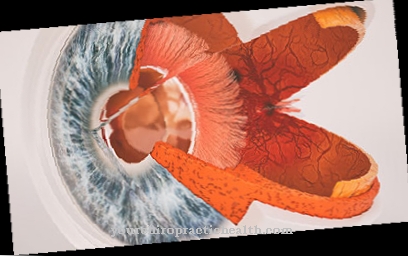
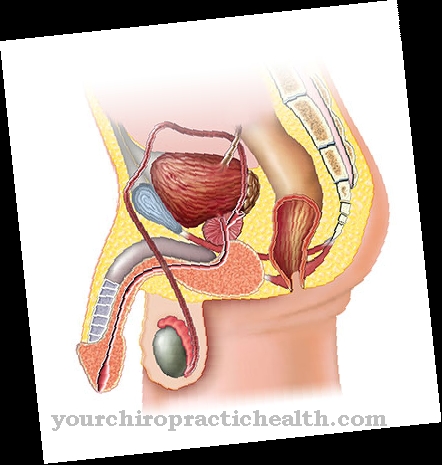
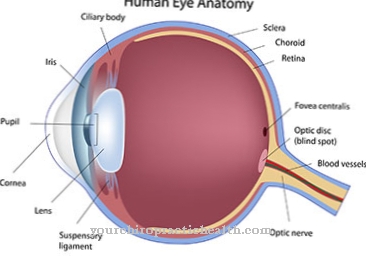
.jpg)
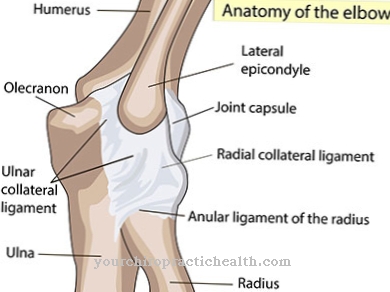
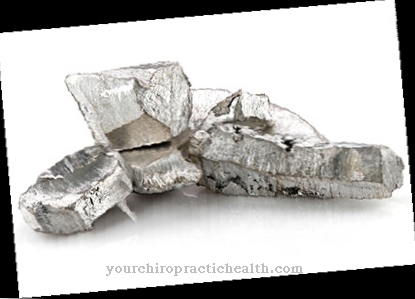

















.jpg)



